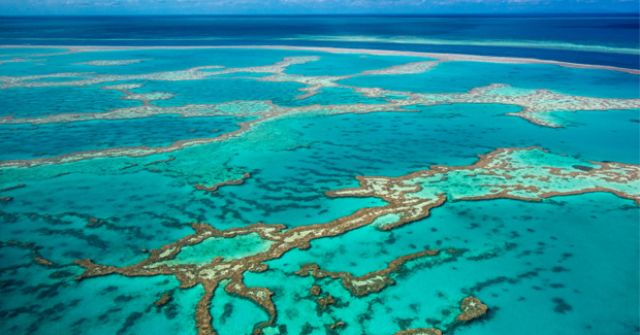
More than 500 people held political parties contesting the Queensland elections to account over the protection of the Great Barrier Reef at a public forum at Brisbane City Hall on January 22.
The forum was was organised by the Australian Marine Conservation Society (AMCS), Queensland Conservation Council, the Wilderness Society, Greenpeace, Australian Youth Climate Coalition and GetUp. It was chaired by Professor Ian Lowe.
AMCS Great Barrier Reef campaign director Felicity Wishart echoed widespread concern about plans to allow millions of tonnes of dredging to be dumped in the Reef’s waters or its wetlands.
“The Reef is under threat from mega ports, dredging, dumping and increased shipping. These projects are being fast tracked and put at risk a $6 billion tourism industry and 60,000 jobs,” she said.
“Among our biggest concerns is the need to ban the dumping of dredge spoil in the Reef’s World Heritage waters and protect valuable areas such as the Fitzroy Delta and Caley Valley Wetlands, the natural filters of the Reef.
“Groups are concerned about the use of taxpayer funds to subsidise the rail and port expansion at Abbot Point, which could damage the Reef.
“We’re talking about one of the wonders of the world, an iconic place and home to turtles, dugongs and corals. We don’t want it turned into an industrial park or shipping superhighway.
The LNP declined to participate in the forum and the Palmer United Party was not able to attend but sent a statement which was read out.
Queensland Greens Senator Larissa Waters and Labor Environment spokesperson Jackie Trad gave a summary of their parties’ policies and actions on the six key questions. Both Greens and Labor promised to ban dumping on the Reef.
But Labor have no plans to scale down coal mining and, although it pledged to not fund the Adani Coal project or the rail link to Abbot Point coal port, it was less concrete than the Greens in putting forward a plan for delivering more renewable energy.
In the discussion which followed, Labor’s position on coal seam gas (CSG) and coal expansion was challenged. Trad conceded that the previous Labor government had played a role in the establishment of the CSG industry, but said that with environmental safeguards “gas is part of the energy mix now and in the future ... part of the transition from coal.”
Waters disagreed that gas and CSG should be part of the mix, “not only because of the impact of fracking. Including gas in the mix will only delay the transition to renewals … it will impact on investment in renewals.”
At the end of the night people were asked to complete a checklist of how the parties scored in relation to the six key issues. The consensus was that the Greens ticked all the boxes.
Like the article? Subscribe to Green Left now! You can also like us on Facebook and follow us on Twitter.